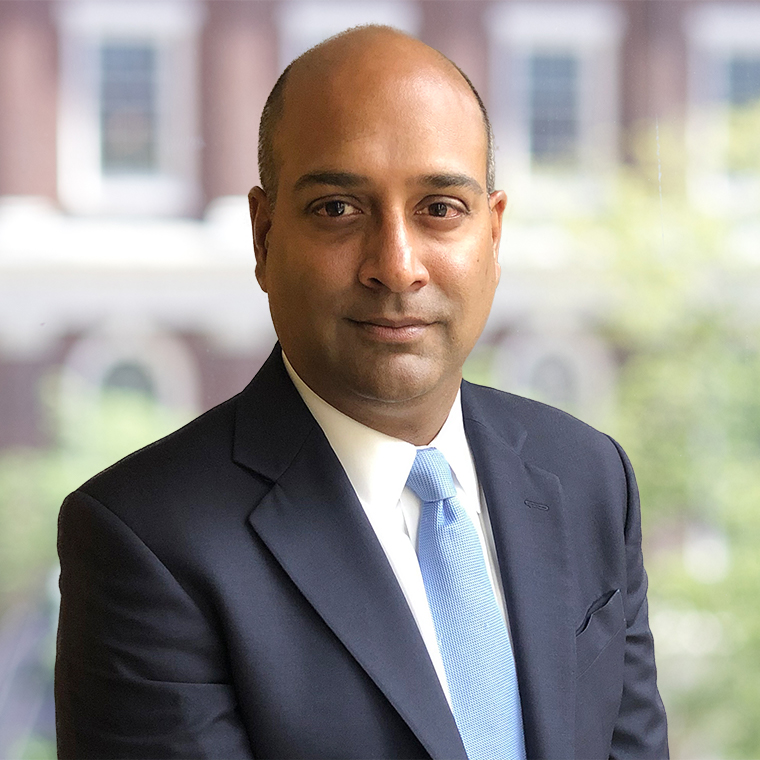The Department of Justice (DOJ) is taking a renewed and aggressive enforcement approach to educational institutions and researchers with affiliations with China, using the False Claims Act (FCA) to impose liability. In 2022, DOJ ended its China Initiative, which had targeted academic researchers for undisclosed Chinese affiliations on federal grant applications under a criminal fraud theory, and prioritized China-related national security threats. In the years that followed, DOJ shifted its focus from individual researchers to their institutions, pursuing a series of FCA cases against universities. Between 2022 and 2024, DOJ announced FCA settlements over undisclosed Chinese ties with five academic institutions, including Ohio State, Stanford, and the University of Maryland.
Recently, DOJ has apparently accelerated this effort, launching multiple FCA investigations against academic institutions linked to researchers with allegedly undisclosed Chinese affiliations. DOJ has focused in particular on universities with research grants from NASA and the Department of Defense (DoD), among other granting agencies. These new investigations appear to stem, in part, from identifying universities and researchers through journal articles with potential China-based co-authors or collaborators that acknowledge federal funding grants. By pursuing these investigations under the FCA, the Administration can seek treble damages from institutions under a lower burden of proof, compared with criminal prosecutions of individual researchers.
Background on DOJ’s “China Initiative”
In 2018, DOJ launched the “China Initiative” to much fanfare, to address growing threats from China, ranging from cyber intrusions to intellectual property theft and espionage. In particular, it drove a new focus on research security—targeting academic researchers with undisclosed Chinese affiliations, such as visiting professorships and participation in PRC programs like the Thousand Talents Plan. DOJ charged researchers under a criminal fraud theory for failing to disclose these ties on federal grant applications. From 2018 to 2021, DOJ brought several high-profile cases against professors, but most of these cases lacked any clear nexus to national security. Several prosecutions collapsed when the government was unable to establish intent and that the omissions were material in the face of ambiguous grant application disclosure rules. Ultimately, the China Initiative garnered a mixed record and engendered controversy over perceptions it disproportionately targeted Asian Americans.
In early 2022, DOJ ended the China Initiative, citing the unjustified drain on DOJ national security program resources, its chilling effect on research collaboration, and unintended harms to public confidence. The Department emphasized, however, that it remained committed to aggressively investigating and prosecuting malign criminal activity tied to the PRC government.
The Shift from Individuals to Institutions: FCA Foreign Influence Cases
After ending the China Initiative, DOJ shifted its focus in this area from individual researchers to academic institutions, and from criminal prosecutions to civil liability. Under its new approach, DOJ sought to hold universities liable under the FCA for failing to disclose a researcher’s Chinese affiliations on grant applications if the institution knew or should have known about those ties. This shift to civil enforcement benefits DOJ by (i) requiring a lower burden of proof than criminal prosecutions and (ii) increasing the likelihood of settlement, as academic institutions seek to avoid litigation that could jeopardize research funding. These FCA investigations during the Biden Administration led to multiple settlements, which factored in the number of researchers, value of the underlying contracts, severity of the harm, and pervasiveness of the violation.
- The Ohio State University: In November 2022, Ohio State paid $875,000 to settle FCA allegations related to one university researcher and the failure to disclose Chinese affiliations in grants from NASA, the Army, and the National Science Foundation (NSF). The settlement resolved allegations that the Ohio State professor failed to disclose funding that he was receiving from a foreign government in connection with employment at a Chinese university, participation in a Chinese talent plan, and a grant from the Chinese government.
- Stanford University: In October 2023, Stanford paid $1.9 million to settle FCA allegations of failure to disclose Chinese affiliations of 12 researchers involving 16 grants from NASA, the Army, the Navy, the Air Force, and NSF over the period from 2015 to 2020. The government alleged that on 16 grant proposals, Stanford knowingly failed to disclose current and pending Chinese funding that principal investigators (PIs) and co-PIs had received or expected to receive for their research. DOJ further alleged that Stanford knowingly failed to disclose to the Army, the Air Force, and NSF that a Stanford professor received research funding in connection with his employment at a Chinese university.
- University of Maryland: In July 2024, the University of Maryland paid $500,000 to resolve FCA allegations of failure to disclose Chinese affiliations of three researchers related to two Army and NSF grants during the period from 2015 to 2020. DOJ alleged that the University knowingly failed to disclose to NSF gift funding from Huawei Technologies Co., Ltd., to a PI, and grant funding to two other PIs from Taobao (China) Software Co., Ltd. (Alibaba).
- University of Albany: In September 2024, University of Albany paid $313,000 to resolve FCA allegations of failure to disclose Chinese affiliations of one researcher related to three NASA and NOAA grants. DOJ alleged that the University knowingly failed to disclose the researcher’s employment at a Chinese university, participation in a Chinese talent plan, and grant from the Chinese government.
- University of Delaware: In December 2024, University of Delaware paid $715,000 to resolve FCA allegations of failure to disclose Chinese affiliations of one researcher related to one NASA grant. DOJ alleged that the University knowingly failed to disclose the researcher’s employment at a Chinese university, participation in a Chinese talent plan, and grant from the Chinese government.
The Latest: Increased Focus on Academic Institutions
Recently, DOJ has renewed its focus on researchers’ Chinese affiliations and related grant awards under an FCA theory of liability. The Trump Administration is doubling down on this effort by identifying universities and researchers based on reviews of journal articles that contain key terms like acknowledgments of agencies’ funding grants and China-based co-authors or collaborators. We are aware that several such investigations have recently begun in quick succession.
DOJ has focused on grants from NASA and DoD, likely due to their stricter regulatory restrictions on foreign affiliations and the potential national security nexus. NASA is subject to the Wolf Amendment, a 2011 law that bars the agency from using appropriated funds for bilateral cooperation with the Chinese government or any China-affiliated organization unless Congress authorizes it and the FBI certifies it does not pose a national security risk. The Wolf Amendment creates a categorical funding restriction, which makes it easier for the government to establish the “materiality” element of an FCA claim where NASA would be legally barred from funding activities had they been properly disclosed.
As DOJ and other federal agencies renew scrutiny of academic researchers with foreign affiliations—especially the institutions that employ them—here are suggested steps that universities can take to reduce risk:
- Educate and Train the Community: Academic institutions should provide training on grant processes, updated agency guidelines, and the importance of full disclosure of all foreign conflicts and affiliations. Institutions should also consider educating the community about research security and foreign influence, as well as the government’s enhanced scrutiny.
- Adopt Guidelines Governing Foreign Affiliations: Academic institutions would be well served to adopt clear guidelines on whether researchers may affiliate with or hold teaching positions at foreign institutions or join foreign talent programs. Institutions should also consider requiring prior approval before any of their faculty contract with foreign entities.
- Investigate Known Conflicts, Disclosure Failures, and Other Concerns: Recent settlements and new investigations mean that academic institutions cannot claim ignorance or blind reliance on their researchers’ representations. DOJ expects an institution to take proactive “steps to investigate the researchers’ foreign funding sources” when it is aware of potential foreign affiliations. DOJ may deem failure to do so as “deliberate or reckless disregard for the truth.”
- Require Disclosure of Foreign Gifts, Grants, and Employment: Academic institutions should consider examining existing conflict-of-interest policies and related procedures to require disclosure of all foreign gifts, grants, employment, or other affiliations. Institutions should seek to ensure that disclosure policies capture all types of foreign affiliations.
- Vet Visiting Scholars, Post-Doctoral Students, and Lab Personnel: Academic institutions should consider vetting visiting scholars, post-doctoral students, and lab personnel to understand potential foreign affiliations, including membership in foreign talent programs. In the research context, academic institutions have traditionally deferred to PIs in the hiring of staff for labs without much, if any, vetting of those individuals. An institution would be well served to know whether any of its faculty, staff, or research personnel raise national security concerns or could potentially lead to government scrutiny.
- Coordinate Compliance Across Campus: Academic institutions should coordinate across campus to prevent information silos concerning researchers’ activities. For example, grants office personnel would be well served to have access to conflict-of-interest disclosures or foreign collaboration agreements to ensure grant submissions are accurate. As prior cases demonstrate, DOJ will look skeptically at incomplete or misleading disclosures when other departments or offices of the institution possessed accurate information.
- Standardize the Grant Process: Traditionally, academic institutions have relied on PIs to complete grant applications, thereby allowing for individualized determination of what information needs to be included. Institutions would be well served to adopt uniform standards for how to answer questions to eliminate any ambiguity regarding the required disclosures and ensure that researchers are accurately completing the applications. Institutions should also consider requiring PIs to review every application with a grant officer, which may prompt the recollection of responsive information that otherwise would have been omitted.
- Audit Grant Submissions: Academic institutions should consider auditing grant applications and progress reports to ensure accuracy, particularly those of researchers with known foreign affiliations. Comparing grant submissions with completed conflict-of-interest disclosures is a straightforward way to begin. Even simple Internet searches, or other public source diligence, could reveal researchers’ undisclosed foreign affiliations. More advanced diligence could include private investigation firms researching foreign-language websites and sources.
- Submit Corrected Submissions: If discrepancies or omissions are uncovered, institutions should consider submitting corrected applications or progress reports to the granting agencies. Failure to do so—particularly on programs that continue to receive federal funding—could lead to potential exposure for the institution for knowingly submitting a false claim.
- Engage with Peer Institutions and Trade Associations: Academic institutions would be well served to remain in regular contact with peer institutions and higher education trade associations to stay abreast of new developments and best practices in this evolving area.
You should be aware of this trend, as several institutions like yours have recently received inquiries or legal process from DOJ, the FBI, or Offices of the Inspectors General of grant-making agencies.
WilmerHale has a deep bench of expertise on these matters, and we stand ready to assist you in any way we can.





